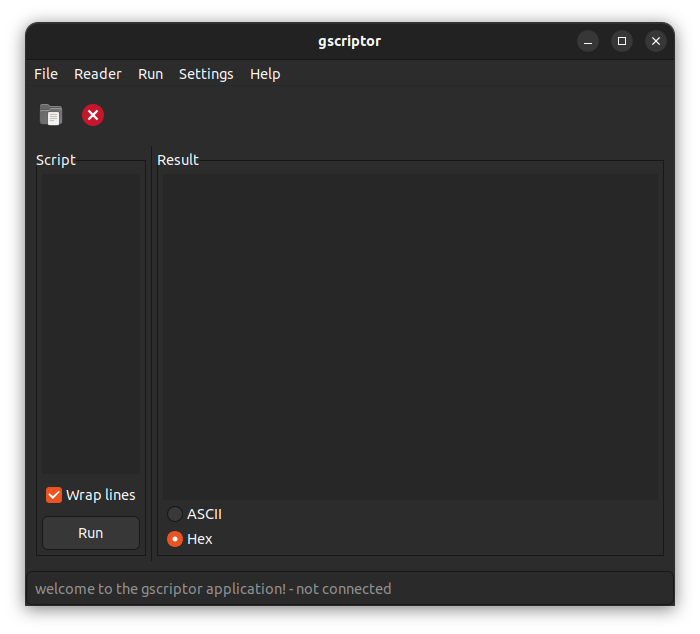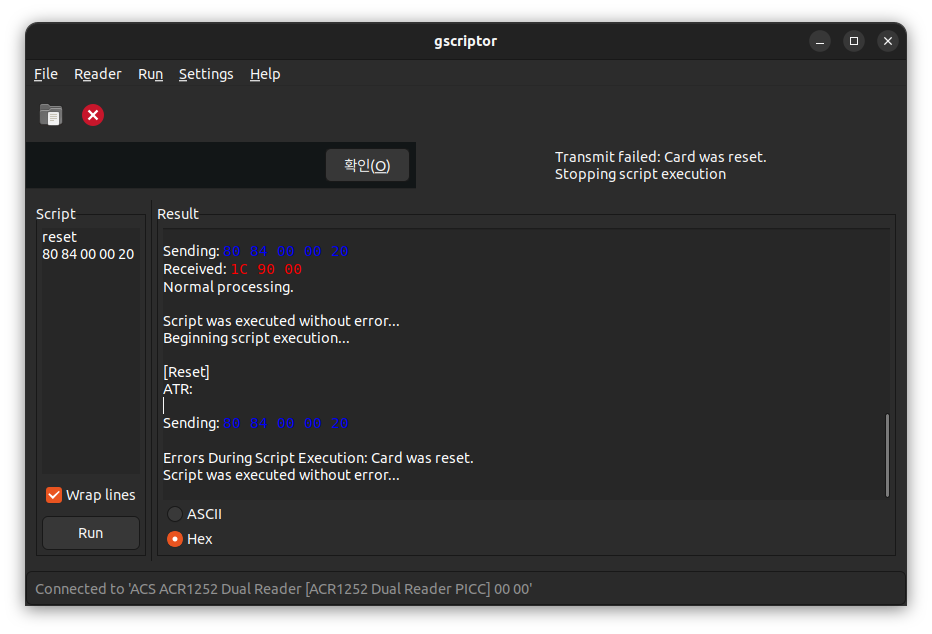윈도우 10에서의 드라이버는 7.13.57.103 던데
7.13.15로 리눅스 쪽이 조금 더 구형인가? (완전 동등한건 아니겠지만..)
리눅스도 마찬가지로 새롭게 배포된 드라이버가 없어서 저런거 같으니..
ubuntu 16.04 / 18.04 정도 하면 더 낮음 버전과 현재 버전 동일하게 나오려나?
ubuntu 24.04
| $ modinfo bnx2x filename: /lib/modules/6.11.0-17-generic/kernel/drivers/net/ethernet/broadcom/bnx2x/bnx2x.ko.zst firmware: bnx2x/bnx2x-e2-7.13.15.0.fw firmware: bnx2x/bnx2x-e1h-7.13.15.0.fw firmware: bnx2x/bnx2x-e1-7.13.15.0.fw firmware: bnx2x/bnx2x-e2-7.13.21.0.fw firmware: bnx2x/bnx2x-e1h-7.13.21.0.fw firmware: bnx2x/bnx2x-e1-7.13.21.0.fw license: GPL description: QLogic BCM57710/57711/57711E/57712/57712_MF/57800/57800_MF/57810/57810_MF/57840/57840_MF Driver author: Eliezer Tamir srcversion: 79B018494B5FB8665F81EB0 alias: pci:v000014E4d0000163Fsv*sd*bc*sc*i* alias: pci:v000014E4d0000163Esv*sd*bc*sc*i* alias: pci:v000014E4d0000163Dsv*sd*bc*sc*i* alias: pci:v00001077d000016ADsv*sd*bc*sc*i* alias: pci:v000014E4d000016ADsv*sd*bc*sc*i* alias: pci:v00001077d000016A4sv*sd*bc*sc*i* alias: pci:v000014E4d000016A4sv*sd*bc*sc*i* alias: pci:v000014E4d000016ABsv*sd*bc*sc*i* alias: pci:v000014E4d000016AFsv*sd*bc*sc*i* alias: pci:v000014E4d000016A2sv*sd*bc*sc*i* alias: pci:v00001077d000016A1sv*sd*bc*sc*i* alias: pci:v000014E4d000016A1sv*sd*bc*sc*i* alias: pci:v000014E4d0000168Dsv*sd*bc*sc*i* alias: pci:v000014E4d000016AEsv*sd*bc*sc*i* alias: pci:v000014E4d0000168Esv*sd*bc*sc*i* alias: pci:v000014E4d000016A9sv*sd*bc*sc*i* alias: pci:v000014E4d000016A5sv*sd*bc*sc*i* alias: pci:v000014E4d0000168Asv*sd*bc*sc*i* alias: pci:v000014E4d0000166Fsv*sd*bc*sc*i* alias: pci:v000014E4d00001663sv*sd*bc*sc*i* alias: pci:v000014E4d00001662sv*sd*bc*sc*i* alias: pci:v000014E4d00001650sv*sd*bc*sc*i* alias: pci:v000014E4d0000164Fsv*sd*bc*sc*i* alias: pci:v000014E4d0000164Esv*sd*bc*sc*i* depends: libcrc32c,mdio retpoline: Y intree: Y name: bnx2x vermagic: 6.11.0-17-generic SMP preempt mod_unload modversions sig_id: PKCS#7 signer: Build time autogenerated kernel key sig_key: 04:C4:4A:DA:A5:9C:D1:96:25:C7:2E:72:7F:7D:11:93:C0:17:79:26 sig_hashalgo: sha512 signature: 45:AE:07:DC:97:16:46:0A:AE:9A:B7:E7:D3:55:6A:BD:39:DB:62:5A: F9:6D:F9:FB:2D:9A:36:A4:06:55:AA:8E:60:0F:AD:E0:70:85:3C:0C: 22:CF:43:A6:51:C0:B4:3A:47:69:A5:3F:B4:D3:BC:23:F6:12:77:F9: AF:13:87:73:A7:68:DF:F6:8C:30:2B:30:15:74:B2:09:74:AC:BB:D4: 91:F8:6F:FB:E8:06:98:70:9E:07:BA:4E:88:16:C3:98:45:47:87:A6: 7B:2D:FA:66:2F:42:5D:A6:EA:72:0D:9F:4E:EE:DA:B0:32:68:DA:FF: 0E:EF:91:69:31:28:10:C3:2A:E4:6A:1A:A3:C7:8C:7B:40:CD:20:98: AF:A9:DE:18:75:4D:E5:FC:7B:2A:78:4E:D7:15:89:FA:26:15:1A:29: 48:59:D8:04:B0:D7:D6:B4:84:5B:3C:1B:88:40:66:0E:2B:94:21:76: FD:C2:3A:8B:5F:EA:72:28:EA:4D:F3:86:CF:B5:22:5E:40:AB:C6:6B: 3F:0F:32:CA:9D:F1:26:24:70:19:8F:15:4A:DA:C3:78:A8:32:B9:0B: AF:DB:01:17:AF:9C:5A:FA:65:EA:21:AE:16:73:1B:7D:FA:83:6F:EA: AB:7C:5D:9F:E8:AD:B0:DD:4E:25:BE:95:61:04:F6:5D:BB:87:0C:51: 8B:66:38:21:FB:D4:69:C5:07:87:E4:35:F6:DF:9D:9A:E1:14:8A:64: 18:C0:78:4E:B6:45:F5:DE:CA:BC:BB:88:9C:E1:40:21:F4:7C:F7:1A: E9:48:42:E7:E5:5F:84:1A:9E:04:12:35:DF:EC:B4:DF:1B:B8:A1:90: 50:9E:40:BB:BE:BF:A3:A6:94:EF:0B:92:67:61:84:2A:F8:DE:00:E2: 53:0C:1A:86:C3:8E:97:DD:20:1E:62:BA:A5:CE:96:E0:59:25:B6:62: FF:C1:84:A3:30:7C:65:0E:45:AE:D0:68:F2:B5:EB:79:DF:A1:D6:B2: 3A:19:E9:6C:BE:64:B3:66:B0:F1:16:7C:74:7B:21:C2:16:D3:65:4C: 2C:FB:3B:9E:53:C0:E2:7A:A5:0E:1A:F3:D1:60:4B:54:19:4F:9B:5B: 3A:3D:3B:5B:D1:1E:E0:B3:37:A1:95:53:7D:C8:58:FC:10:55:5C:B5: 0A:77:34:18:68:29:DA:E7:84:F1:FE:A7:8F:30:CB:F8:74:B0:76:9B: EE:1A:5F:06:0B:0E:24:BB:EE:AB:74:8D:E8:A8:75:85:4D:D7:C0:F3: FE:BD:D9:D1:58:97:A4:B2:6C:5F:A8:4E:58:4C:41:F3:04:C6:24:4A: B9:C4:AB:AB:20:B7:0E:C0:4E:0B:5B:54 parm: num_queues: Set number of queues (default is as a number of CPUs) (int) parm: disable_tpa: Disable the TPA (LRO) feature (int) parm: int_mode: Force interrupt mode other than MSI-X (1 INT#x; 2 MSI) (int) parm: dropless_fc: Pause on exhausted host ring (int) parm: mrrs: Force Max Read Req Size (0..3) (for debug) (int) parm: debug: Default debug msglevel (int) |
22.04
| $ modinfo bnx2x filename: /lib/modules/6.8.0-52-generic/kernel/drivers/net/ethernet/broadcom/bnx2x/bnx2x.ko firmware: bnx2x/bnx2x-e2-7.13.15.0.fw firmware: bnx2x/bnx2x-e1h-7.13.15.0.fw firmware: bnx2x/bnx2x-e1-7.13.15.0.fw firmware: bnx2x/bnx2x-e2-7.13.21.0.fw firmware: bnx2x/bnx2x-e1h-7.13.21.0.fw firmware: bnx2x/bnx2x-e1-7.13.21.0.fw license: GPL description: QLogic BCM57710/57711/57711E/57712/57712_MF/57800/57800_MF/57810/57810_MF/57840/57840_MF Driver author: Eliezer Tamir srcversion: 9CE321FFAD4DD55B8C0EFE5 alias: pci:v000014E4d0000163Fsv*sd*bc*sc*i* alias: pci:v000014E4d0000163Esv*sd*bc*sc*i* alias: pci:v000014E4d0000163Dsv*sd*bc*sc*i* alias: pci:v00001077d000016ADsv*sd*bc*sc*i* alias: pci:v000014E4d000016ADsv*sd*bc*sc*i* alias: pci:v00001077d000016A4sv*sd*bc*sc*i* alias: pci:v000014E4d000016A4sv*sd*bc*sc*i* alias: pci:v000014E4d000016ABsv*sd*bc*sc*i* alias: pci:v000014E4d000016AFsv*sd*bc*sc*i* alias: pci:v000014E4d000016A2sv*sd*bc*sc*i* alias: pci:v00001077d000016A1sv*sd*bc*sc*i* alias: pci:v000014E4d000016A1sv*sd*bc*sc*i* alias: pci:v000014E4d0000168Dsv*sd*bc*sc*i* alias: pci:v000014E4d000016AEsv*sd*bc*sc*i* alias: pci:v000014E4d0000168Esv*sd*bc*sc*i* alias: pci:v000014E4d000016A9sv*sd*bc*sc*i* alias: pci:v000014E4d000016A5sv*sd*bc*sc*i* alias: pci:v000014E4d0000168Asv*sd*bc*sc*i* alias: pci:v000014E4d0000166Fsv*sd*bc*sc*i* alias: pci:v000014E4d00001663sv*sd*bc*sc*i* alias: pci:v000014E4d00001662sv*sd*bc*sc*i* alias: pci:v000014E4d00001650sv*sd*bc*sc*i* alias: pci:v000014E4d0000164Fsv*sd*bc*sc*i* alias: pci:v000014E4d0000164Esv*sd*bc*sc*i* depends: libcrc32c,mdio retpoline: Y intree: Y name: bnx2x vermagic: 6.8.0-52-generic SMP preempt mod_unload modversions sig_id: PKCS#7 signer: Build time autogenerated kernel key sig_key: 2C:68:EE:35:C6:57:43:98:C1:44:A9:70:A2:C2:42:7C:C2:28:BA:D4 sig_hashalgo: sha512 signature: 3C:0E:34:A8:BF:51:B4:06:B9:20:9F:8B:E6:36:C4:36:FA:6D:55:34: D7:58:37:86:7F:9D:A0:2A:AC:70:B8:5A:BA:A5:C9:2C:13:B0:2F:C1: 90:24:D9:25:E7:4A:EE:1C:55:B3:8E:9A:7E:FD:CC:D7:DE:7A:DE:5F: D8:4A:86:01:35:6D:45:4A:EE:BB:B1:C8:73:AC:1C:BF:15:30:F0:61: 3A:EF:CA:B5:BF:BB:68:E9:CD:8B:37:7D:4D:5B:33:14:3F:02:8E:D0: 44:8F:08:AB:0C:5C:A8:9C:3A:81:69:A5:2C:AC:05:14:CE:ED:E4:A9: 99:D0:BE:6F:DF:95:E8:C2:CB:38:B9:5C:2A:D0:54:F5:F0:62:D3:A7: 64:3C:E9:3E:E9:58:FC:4D:A7:5F:31:91:09:6B:25:5A:42:C9:21:AE: 7F:6B:CB:F9:C4:41:04:C5:63:43:87:4F:F5:B9:F8:9A:44:97:25:4B: E4:7F:82:F9:28:D2:9E:27:6B:A9:53:BA:2A:D7:EB:F3:35:42:B1:5F: 95:77:50:4F:A7:A7:98:24:28:D1:6D:30:9F:85:4C:28:8C:F2:B9:A2: 91:10:97:C2:A8:F6:29:07:02:68:89:46:E9:36:7D:B3:E6:DF:F2:7F: 26:78:10:4C:59:36:47:C0:88:DF:F8:E6:1C:EA:AC:03:18:17:F2:96: 4F:14:26:F7:5F:26:5B:1B:3B:BC:1E:44:8D:E5:FC:57:2D:7A:5D:DB: C9:93:03:F4:FB:36:A2:5F:06:CB:40:B6:66:40:E2:A1:92:45:27:A4: B4:2D:EC:9C:F9:AA:8F:3E:A2:C6:09:31:EB:3D:4B:F1:D1:97:7D:4D: E3:A1:D0:F1:EE:CC:CF:9A:11:F9:5E:41:F9:A9:8D:2B:30:53:41:2A: E6:59:6B:C0:18:6A:B0:D4:66:20:65:F6:97:17:D7:B9:DD:A8:10:D3: 3E:EA:7D:2E:85:0C:BE:1F:54:E5:B7:45:7B:C4:5E:3D:4C:32:58:5C: FF:BF:83:83:46:C3:C4:80:4D:EB:17:0D:24:2E:61:DC:26:47:C9:B7: 2A:49:3D:1D:ED:21:5E:C9:2B:74:81:97:D3:CE:8B:97:6F:2A:44:EB: 30:FB:C0:BC:21:72:2A:A5:1B:EB:D0:9B:3A:33:F8:EE:00:28:E0:7F: 73:3A:72:79:2C:02:10:44:12:8E:6E:F7:A0:DF:E9:D9:95:0A:28:41: E9:63:FC:CD:06:31:FA:9E:98:32:F6:48:F5:49:24:58:50:1A:85:F3: 79:29:D2:6F:25:91:BB:20:41:83:95:9F:82:24:10:A8:6B:71:E6:F1: 4C:51:01:90:C9:50:25:A8:FE:7C:00:42 parm: num_queues: Set number of queues (default is as a number of CPUs) (int) parm: disable_tpa: Disable the TPA (LRO) feature (int) parm: int_mode: Force interrupt mode other than MSI-X (1 INT#x; 2 MSI) (int) parm: dropless_fc: Pause on exhausted host ring (int) parm: mrrs: Force Max Read Req Size (0..3) (for debug) (int) parm: debug: Default debug msglevel (int) |
'하드웨어 > Network 장비' 카테고리의 다른 글
| iptime 포트미러링 (0) | 2025.09.17 |
|---|---|
| fc san (0) | 2025.03.08 |
| 랜카드 sr-iov 설정 (0) | 2025.02.26 |
| ubuntu 네트워크 연결되지 않음 40초 간격 (0) | 2025.02.26 |
| BCM957810A1008G 히트싱크 분해 (0) | 2025.02.24 |





















